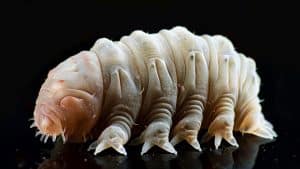Pathologists and medical examiners, brace yourselves. Your job might be to examine dead bodies all day, in the most minute detail, but new research suggests that even looking at a corpse for a short time can actually have an impact on your longevity. Well, it does in flies; we’re not sure about humans yet (https://longevity.technology/news/corpse-spotting-why-seeing-the-dead-could-be-bad-for-your-health/). Can perception really have such an important part to play?
There are a lot of environmental factors that can influence our aging process, but the idea that the things we see are among them is definitely on the more extreme end, unless we’re talking about a traumatic experience contributing to PTSD or depression. Research on fruit flies, however, shows a very definite link.
This research comes from the University of Michigan. The first study showed that the fruit fly, properly called Drosophila melanogaster and sometimes known as the vinegar fly, would experience adverse health effects, including reduced longevity, when it saw other fruit flies lying dead. It seems to be related to how our sensory perception connects to our neurons and the activity of our central nervous system. In the case of the fruit flies, there appeared to be a specific link to serotonin receptors.
The newest study aimed to explore the mechanisms of this process in a little more depth. Fluorescent tagging was used to monitor the fruit flies’ brains when they saw corpses. Two particular neurons, R2 and R4, became active at the sight. These neurons are home to an important serotonin receptor called 5-HT2A. When both of these neurons are activated, even if done artificially without the perception of death, it can lead to the fruit fly’s overall lifespan decreasing.
Obviously, fruit flies aren’t the same as humans. Part of the reason they’re popular as research subjects is their relatively simple genetic structure that is easy to analyze compared to other animals. They have, however, been behind some major scientific discoveries. The 2017 Nobel Prize in Physiology or Medicine was given to research into the mechanisms of circadian rhythms, including in humans, with fruit flies being the model for the study.
We might not be able to control whether we see a dead body (although it’s an unlikely experience for most people), but the better we understand how sensory perception impacts aging through the connection of our neurons, the more likely we can develop targeted therapies.




